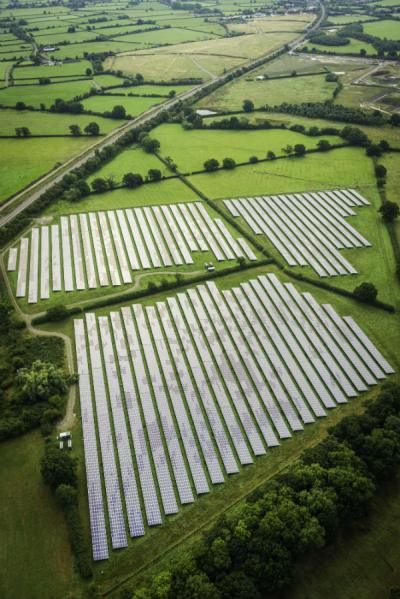Network companies are performing well for consumers
- Kersti Berge
- Publication type:
- Blog
- Publication date:
- Industry sector:
- Transmission Network,
- Distribution Network
In the past, energy networks only had to transport electricity and gas from A to B so that when a household turned on the boiler or flicked a switch, there would be heat and light.
Today, the network companies’ role is changing. Of course, they still have to transport energy wherever and whenever it is needed. But as we move towards a smarter, more flexible and low carbon energy system, we need them to do much more.
Networks, which act as the main roads binding the energy system together, need to connect more distributed generation like solar farms to the grid.
They also have an increasingly important role to play in balancing a system which is more reliant on intermittent renewable generation.
Ofgem’s price controls set how much these monopoly businesses need to spend on doing all this while keeping costs as low as possible for consumers.
Around a quarter of a consumers’ energy bill (about £250) is made up of these network costs. Under our regulation these costs on bills have fallen by around 17% since privatisation.
Since 2013, we have been setting price controls using a new approach (Revenue=incentives+innovation+outputs - RIIO) which helps networks adapt to this new role in a rapidly changing energy system.
Today we have published the 2016/2017 annual reports for the four price controls that we set for gas distribution, electricity distribution, electricity transmission and gas transmission.
The reports show that, by and large, network companies are delivering well for customers and providing the services the energy system needs:
- More than 2.8 GW of smaller scale generation such as solar farms was connected to the electricity distribution network in 2016/17, a 60% increase on the previous year. More than a quarter of all generation capacity is now connected to electricity distribution networks, and the 2016/17 data is further evidence of this trend.
- Reliability is improving. In 2016/17 the number of power cuts across Great Britain reduced by 3% compared with 2015/16, however the duration of power cuts increased by 1% because of adverse weather. Overall the number and length of power cuts has almost halved since 2002.
- Customer satisfaction with local networks is at records levels. In 2016/17 the score was 8.8 out of 10 for electricity distribution and 8.8 out of 10 for gas distribution, compared to 8.0/10 and 8.4/10 for electricity and gas distribution respectively when we first started recording in 2013.
- Since the start of the gas distribution price control in 2013, more than 50,000 more fuel poor customers have been connected to the mains gas grids so they can get cheaper energy.
- Electricity distribution and electricity transmission network companies have reduced the carbon footprint of their networks in the past two years by 850,000 CO2e.
- The reports also confirm that companies are making double-digit, or close to double digit returns in real terms. Some of this is because of greater efficiency, good performance against targets, or companies innovating to cut costs.
However, gas distribution and energy transmission companies in particular are also gaining from factors which aren’t linked to their performance. The continued shift in financial markets since the 2008 financial crisis means that some investors are willing to accept lower returns from longer-term investments in regulated infrastructure. This means the companies could have raised finance at a lower cost than was expected, which increases their returns.
Companies are also benefitting as actual prices of labour and materials have not increased by as much as forecast when the price control was set. In some cases demand for connections to the networks has been lower than expected, further reducing companies’ costs.
Under Ofgem’s regulation, all network companies are required to share savings with consumers. This has resulted in around £4.5 billion being handed back to consumers in the form of lower network charges.
In addition, network companies making among the highest returns have made voluntary contributions to customers. This is important because profits of network companies need to be seen to be legitimate. These companies have committed to hand back over £650 million to customers, yet Northern Gas Networks and Wales and West Utilities, which are both owned by CKI, have yet to make a contribution.
We have made it clear to energy companies and investors that the next set of price controls will be tougher. Evidence from monitoring of financial markets points towards cost of capital and returns being lower from 2021 onwards, so the companies must prepare for earning lower returns. We will talk more about our plans for tougher price controls early next year. The networks provide an essential service and customers need to be confident they are paying a fair price for it. It is in companies’ interests to work with us to achieve that.

